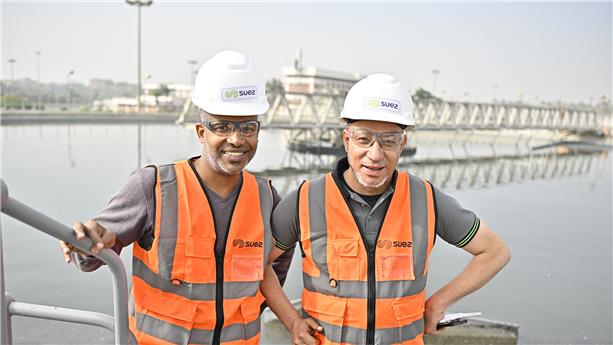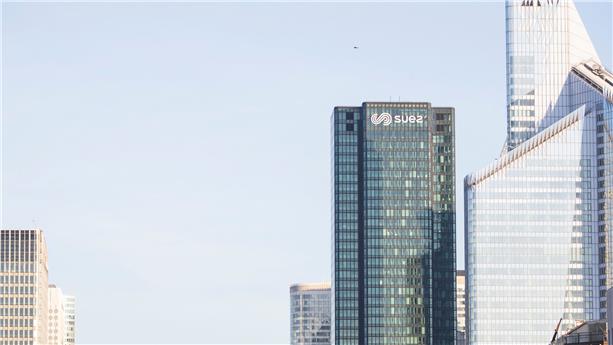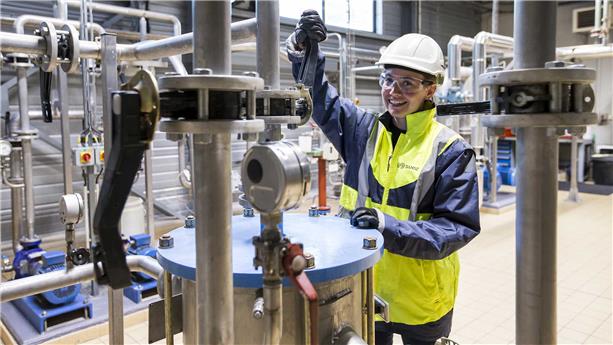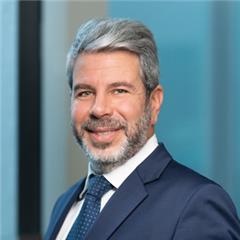
Treating PFAS in Chemical Valley: a first in France The Syndicat Mixte d’Eau Potable Rhône-Sud authority and SUEZ are rolling out a new treatment solution at the Ternay water plant
Producing high-quality water for our member authorities is a major issue at a time when raw water sources are being affected by the presence of PFAS. Thanks to the new treatment that we and SUEZ will be introducing to our Ternay plant, we will be able to ensure the quality of the water we produce by upgrading our existing facilities."
A collaboration between the Syndicat Mixte d’Eau Potable Rhône-Sud authority and SUEZ to treat PFAS in drinking water
For more than one in two French people, deteriorating quality is the main topic of concern in relation to water, ahead of water shortages caused by prolonged droughts. 72% of French people believe that the quality of their water is declining1. Water quality is a particularly important issue in the Rhône Valley, which has been one of the first regions of France to be confronted with the issue of PFAS.
From 2022, the Syndicat Mixte d’Eau Potable Rhône-Sud authority took action to preserve the quality of drinking water produced by the Ternay plant. SUEZ worked with the authority to implement an action plan in two phases: first, laboratory tests at CIRSEE, SUEZ’s international research centre, and then an industrial pilot at the plant to confirm the results obtained. This action plan, carried out in close collaboration with the health authorities and with the support of the Agence de l'eau Rhône Méditerranée Corse, has made it possible to identify the most appropriate treatment for PFAS at the site and improve the quality of drinking water in the long term.
An innovation that can be applied directly in an existing plant
The Ternay drinking water plant was inaugurated in 2017 and currently relies on six activated carbon filters. Analysis carried out since 2022 has shown that these filters quickly become saturated, affecting their ability to retain all PFAS present in the incoming water. To ensure the quality of drinking water over the long term, the Syndicat Mixte d’Eau Potable Rhône-Sud authority and SUEZ decided to implement SUEZ’s patented solution, which involves continuous renewal of the activated carbon using a system of six downflow reactors. This innovation allows the effectiveness of water treatment to be maintained on an ongoing basis, without having to shut down filters in order to replace the carbon. It can be integrated into an existing plant as part of upgrading work, thereby limiting the cost of investment for the local authority.
A further illustration of SUEZ’s leading-edge expertise to provide practical PFAS treatment solutions
SUEZ has been addressing the issue of PFAS since 2018 and has developed leading-edge expertise, with the ability to analyse and quantify the presence of 65 types of PFAS in water, 45 more than the number targeted by regulations, alongside its proven treatment solutions such as activated carbon and low-pressure reverse osmosis. SUEZ has developed a comprehensive, structured approach to support local authorities: assessments, carrying out laboratory-based validation tests, performing semi-industrial on-site demonstrations and defining and sizing the treatment system best suited to the local context. SUEZ also has a high level of expertise in the elimination of PFAS through high-temperature incineration in specialised facilities.
1. Etude Institut Terram, "Eau sous tension : les Français face aux défis hydriques de leurs territoires" ("Water under stress: the French people's views on water challenges in their regions"), March 2025


